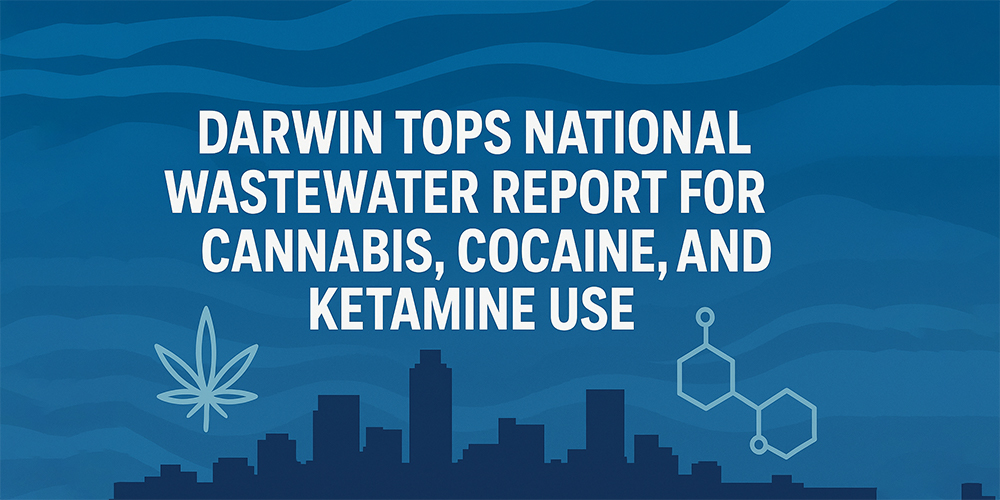
Home » Darwin Tops National Wastewater Report for Cannabis, Cocaine, and Ketamine Use
Darwin Tops National Wastewater Report for Cannabis, Cocaine, and Ketamine Use
Darwin has emerged as Australia’s unexpected capital for illicit drug consumption—including cannabis—according to the latest national wastewater analysis released today. The report, which examines drug residues flushed through sewage systems across the country, found the Northern Territory’s capital leading the nation in per capita use of cannabis, cocaine, and ketamine.

Key Development: Darwin Leads Cannabis Consumption
The wastewater report, coordinated by the Australian Criminal Intelligence Commission (ACIC), sampled sewage from dozens of urban and regional sites between June and August 2025. Results showed Darwin outpacing other capitals in cannabis consumption rates, solidifying its position as a national hotspot for illicit drug use.
Cannabis traces were consistently higher than the national average, placing Darwin at the forefront of Australia’s ongoing cannabis debate. The findings sit in stark contrast to NT’s relatively small population—highlighting a concentrated consumption pattern that policymakers and health agencies say requires urgent attention.
Impact & Implications
The results raise questions about both supply chains and social drivers of cannabis consumption in the Northern Territory. While cannabis remains illegal for recreational use across Australia, the report indicates persistent demand, despite enforcement measures.
Public health officials are particularly concerned that high cannabis usage, alongside elevated cocaine and ketamine consumption, may signal broader mental health and substance abuse challenges within the region. Law enforcement authorities, meanwhile, say the data will be used to target trafficking networks supplying cannabis and other illicit substances into the NT.

Market & Regional Context
The NT has historically been associated with high alcohol consumption rates, but cannabis and stimulant use has been steadily rising. Experts point to Darwin’s remote location and transient workforce as contributing factors. Limited access to mental health support services may also be pushing some residents toward self-medication with cannabis and other substances.
Comparatively, eastern states such as New South Wales and Victoria continue to dominate in terms of total drug volume, but Darwin’s per capita figures stand out. This difference underscores how smaller jurisdictions can face disproportionately large public health burdens when drug use trends spike.
Looking Ahead
The wastewater results are likely to intensify calls for drug policy reform in Australia, particularly around cannabis. Advocates argue that legalization and regulation could help reduce reliance on the black market, improve quality control, and redirect law enforcement resources toward harder substances.
On the other hand, policymakers remain divided—some calling for tougher penalties, while public health experts push for harm reduction strategies and investment in treatment services.
As the NT grapples with its new label as Australia’s cannabis capital, the next steps will be crucial in determining whether the region can pivot toward progressive reform or continue with enforcement-first strategies.

